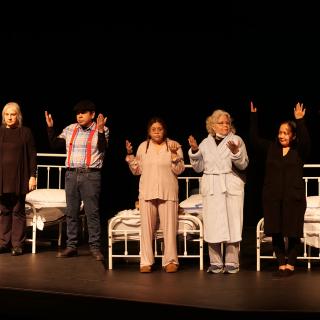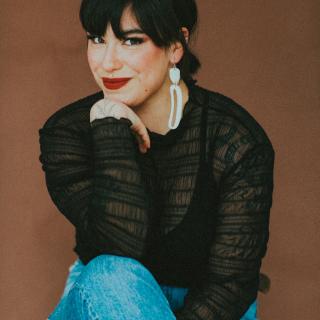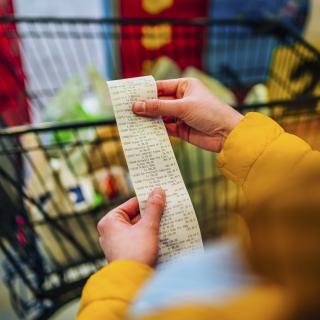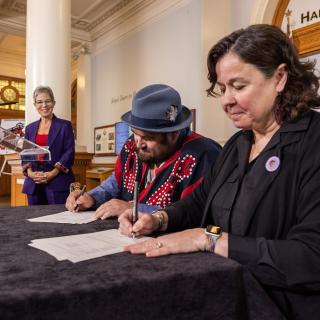The Indigenous Perspectives Learning Circle group, made up of 10 Indigenous, five international and five non-Indigenous students, met monthly over the school year to discuss how to better incorporate Indigenous perspectives into their work, studies and personal lives.
The more Evangeline Clifton talks with others about her people's experiences, the more she realizes that further awareness building is needed.

Clifton says she was surprised to learn how similar people’s experiences are from different parts of the world, and how with a little awareness comes not only understanding, but also better relationships.
“It’s not just in Canada that we are trying to work on repairing relationships,” she says. “Not everybody knows what our nations have gone through – we’ve been so focused on the reconciliation part that we’re skipping the truth part, and I think we still need to have those hard conversations to bring awareness.”
Clifton was also surprised to discover how inaccurately Canadian Indigenous peoples are portrayed around the world.
“A lot of people, when they travel to Canada, don’t know anything about us, don’t expect us to be here,” she says, adding she plans to move home after she finishes her education and start a tourism business that highlights the rich, unique culture of her nation without exploiting it.
Every year, the Office of Aboriginal Education and Engagement has offered a learning circle discussion group to faculty seeking guidance on how to incorporate Indigenous perspectives into their curriculum, which one or two students usually participate in. This year, the office decided to offer one just for students, explains Dr. Sharon Hobenshield, Director.
“We wanted to encourage students to take the lead in sharing some of the challenges they face, explore questions they had grappling with big concepts like reconciliation and Indigenization of the academy,” she says. “Our job was to simply act as facilitators and hold space for these discussions. The students took up that space, asking critical questions, addressing their assumptions, fears and knowledge. I feel very fortunate to have witnessed their work and observe this community of learners and leaders."

“I find journalists only want to go to communities to get the quick-hit stories; the digging it requires to get the fuller story is often not there,” he says. “It shouldn’t just be the responsibility of Indigenous peoples to educate Canadians on the true history; we should all shoulder this story.”
Sanchit Mittal, a Master of Business Administration student from India transitioning to work as VIU’s Off-Campus Housing Coordinator, says his Canadian education would have been incomplete if he hadn’t been part of the learning circle.
“As an international student, if we don’t learn the real history, we don’t really experience Canada in its true sense,” he says. “Over the last eight months, this group truly opened up my heart and made me start thinking about things that I had not known I had to think about because I had not known they existed. It’s important that everybody is part of this dialogue and thinking consciously about it.”
-30-
MEDIA CONTACT:
Jenn McGarrigle, Communications Advisor, Vancouver Island University
P: 250.740.6559 | C: 250.619.6860 | E: Jenn.McGarrigle@viu.ca | T: @VIUNews





